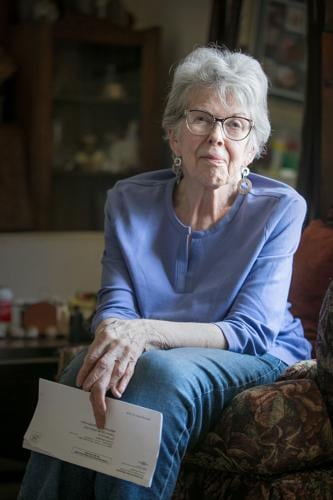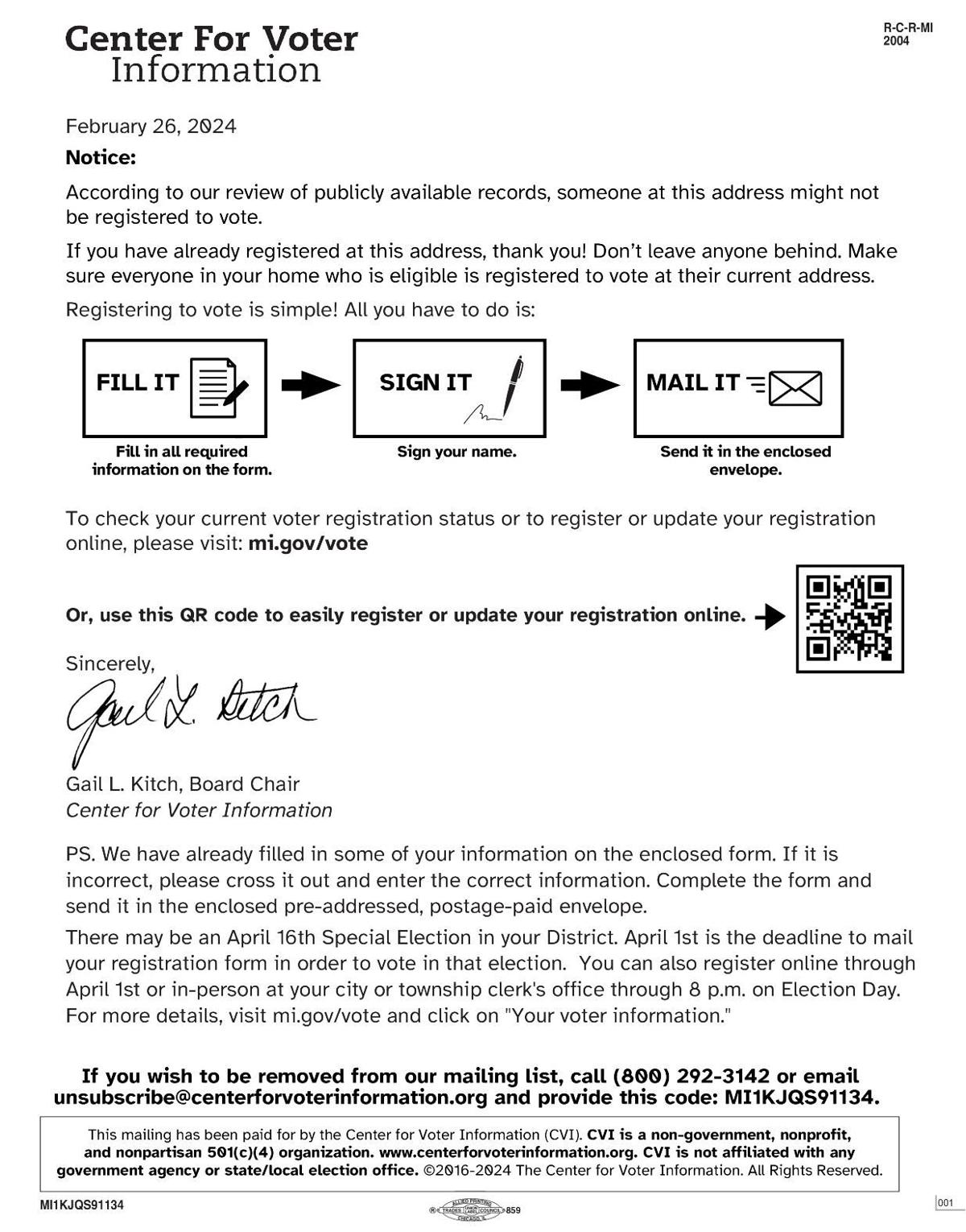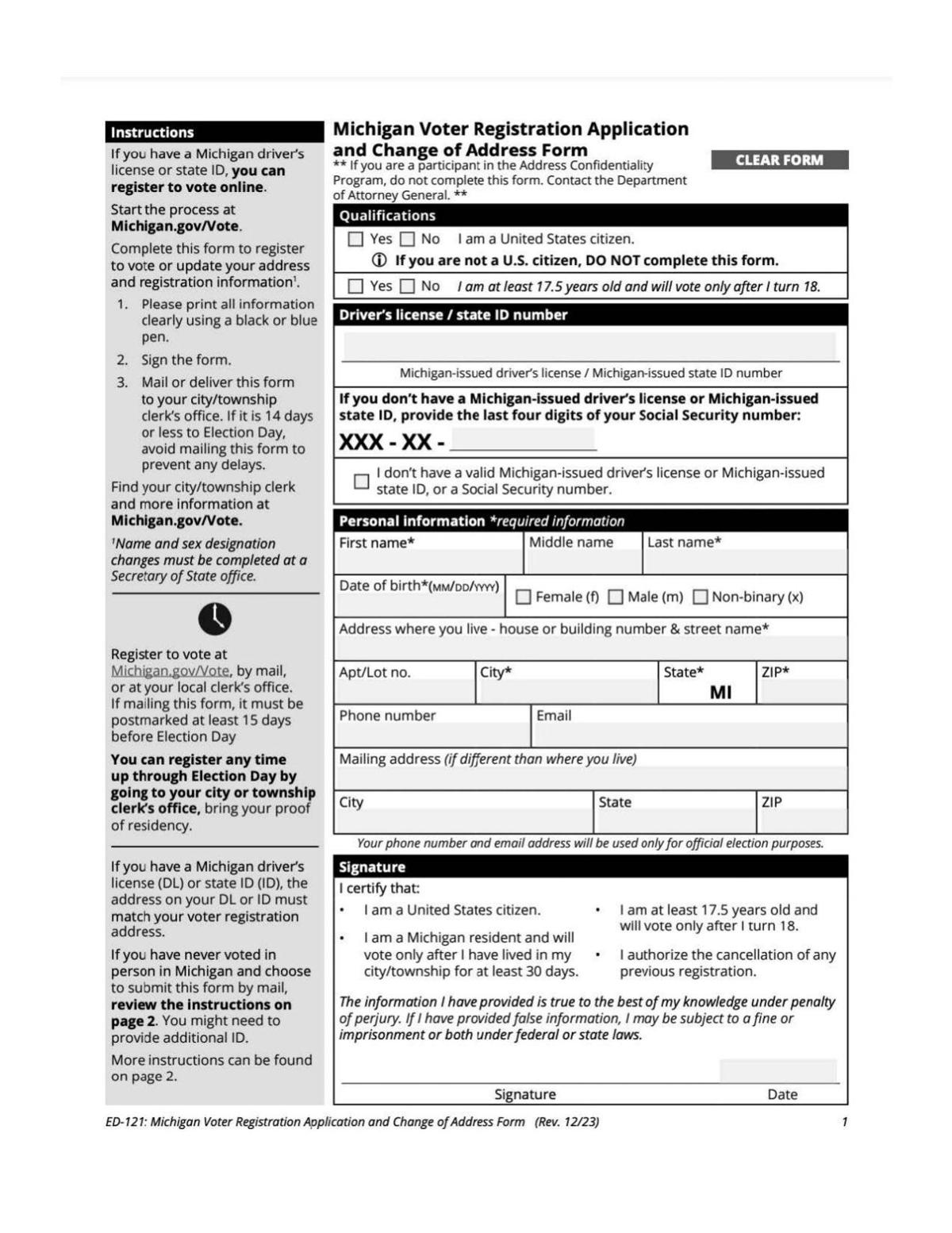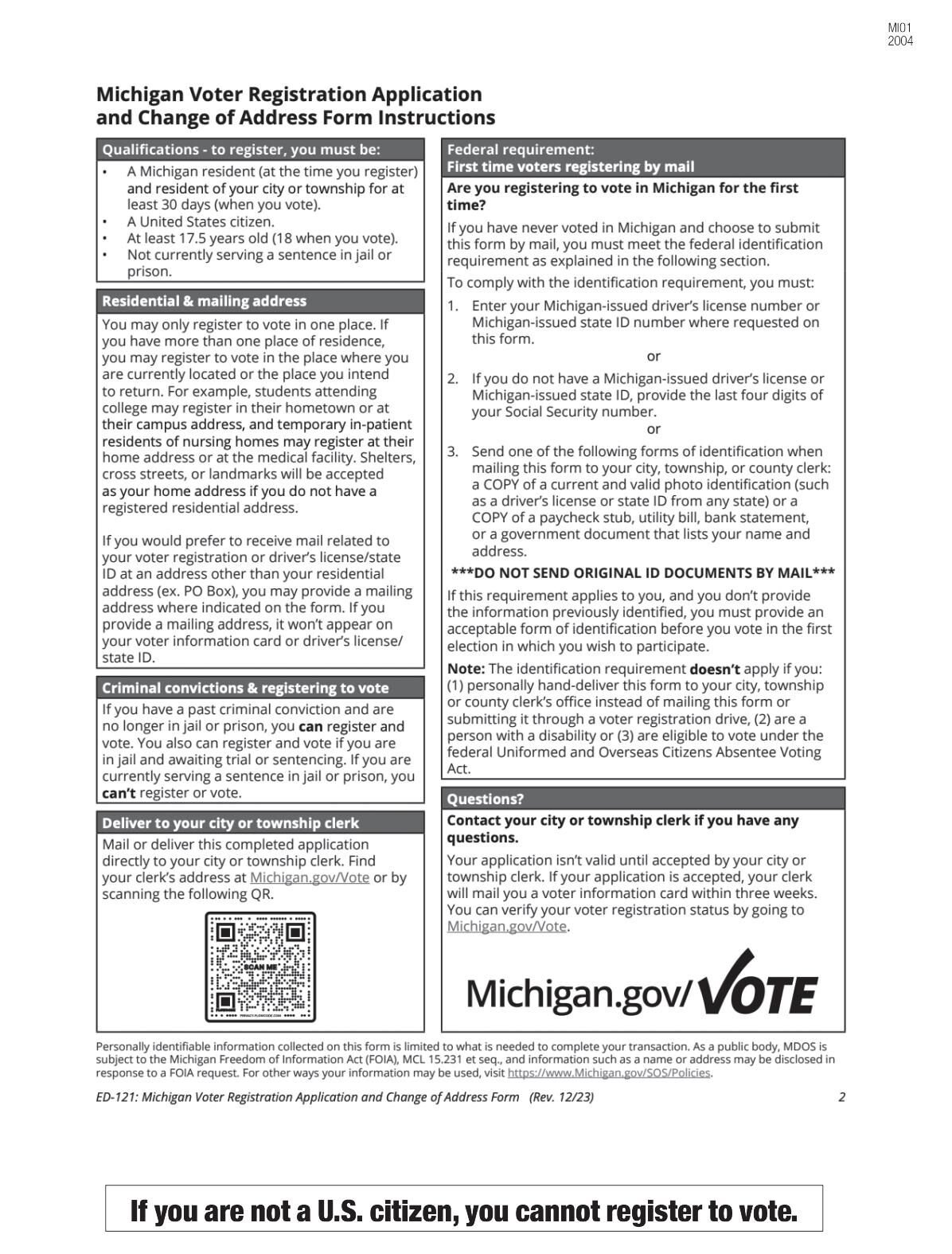Record-Eagle stories focusing on the Grand Traverse area's 2024 elections and related issues:
TRAVERSE CITY — A mass mailer aiming to boost voter registrations has some recipients confused, but help is just a click or phone call away.
The Center for Voter Information sent a letter to “Current Resident” at Olave Russell’s Traverse City address, telling her that a review of publicly available records showed someone at her address might not be registered to vote. The envelope also urged “Current Resident” not to dispose of the mail, since a voter registration form was enclosed.
That form already had Russell’s address filled in, and came with a postage-paid envelope addressed to the City Clerk at the Governmental Center, Russell said. So that’s who she called, and an employee there told her that her voter registration is all set. In fact, her record showed she’s a consistent voter.
“My question is, and I worked for the (U.S.) Census Bureau, how can they be that far off, not having any information of whether or not someone is a registered voter and perhaps has taken advantage and voted?” she said.
The organization is legit — Tom Lopach is the CEO of both Center for Voter Information and Voter Participation Center, two partner organizations aimed at boosting voter registration among under-represented demographics nationwide, he said.
While the latter focuses on registering people of color, young voters and unmarried women, the Center for Voter Information reaches out to any potentially unregistered voter not in those categories through both direct mailing and digital outreach.
Those efforts have paid off over 21 years, with 6.1 million eligible voters submitting an application with the nonprofits’ help, Lopach said. In Michigan, the two organizations helped more than 140,000 people register between 2020 and 2023.
“One of the challenges in this work is, there is no list of unregistered voters for which to send, so we need to use commercial data to identify people who live at addresses where there may not be a registered voter,” he said.
Cross-referencing that data with six different databases and existing voter rolls helps the organization filter out everything from pet names, since people often use a cat or dog’s moniker to register for catalogs, according to Lopach, to the names of deceased people.
One example of what the organizations look for would be a parent with a few children of voting age living at the same address, Lopach said.
But people do move, so it’s possible the organizations might flag an address based on commercial information for a previous resident, he said.
The enclosed voter registration form the Center for Voter Information provided is identical to Michigan’s official registration form, save some pre-filled information and text added at the bottom stating that people who aren’t U.S. citizens can’t register to vote.
It’s something the nonprofit adds on all its forms to ensure local clerks that ineligible people aren’t sending back the forms.
“It’s just an effort to make sure we’re doing the right thing,” Lopach said.
The letter also includes the web address of the Michigan Secretary of State’s Voter Information Center — www.michigan.gov/vote — and reads, “If you are already registered at this address, thank you! Don’t leave anyone behind. Make sure everyone in your home who is eligible is registered to vote at their current address.”
Russell said she wants others to know what these mailers are about, and that they can call their local government’s clerk if they have any doubt.
Marentette said his office got a number of calls from people like Russell who got the mailer and were concerned about their registration. He’s not aware of any who weren’t registered when they called, and his office has received a handful of the postage-paid envelopes the Center for Voter Information provided.
“My sense is that their goal is to make sure people get their voter registration updated if it needs to be,” he said. “Depending on how the mailers are worded, it gives different impressions on different people.”
That’s especially true given voters’ heightened sensitivity from people raising questions about the election process and integrity, Marentette said. Yet there’s never been any kind of evidence showing fraud in Michigan and the U.S. that had any impact on an election’s outcome.
Outside of Traverse City, Peninsula Township Clerk Becky Chown said she’s taken calls from people who got one and were confused.
So has Long Lake Township Clerk Ronda Robinson, who said she’s gotten two or three calls. They thought her office sent the mail, and in each case they were all registered to vote.
“I think it’s kind of misleading and a little unfortunate, because it does cause concern when residents think they’re registered to vote and everything’s great and they can show up next time,” she said. “Then when they get that in the mail ... especially for some of our older voters, they panic, call and think something’s up with their voter file.”
Lopach said the Center for Voter Information isn’t trying to mislead.
“In fact, we work very hard to share accurate information to help people vote,” he said. “But the mere fact that people have to register and have to register at their current address, and that people are transitory makes it a little bit hard to get everybody registered to vote at the right address.”
Political groups that send absentee ballot applications can cause similar confusion, Robinson said — Chown echoed this. Voters who may have already applied for one then get these in the mail from organizations “trying to help.”
For each instance, Chown, Marentette and Robinson gave the same advice: call your local clerk.
“We always tell any voter who has any concerns, especially when they’re getting stuff in the mail, just give us a call,” Robinson said, adding it takes her or deputy Clerk Heidi Mello mere seconds to check a voter’s information.
Lopach echoed this, adding that voters can check their registrations online, too. If they’re registered, great, but if not, they can use the form.
“I would also say it’s important to remember: accurate information isn’t misinformation,” he said.



























